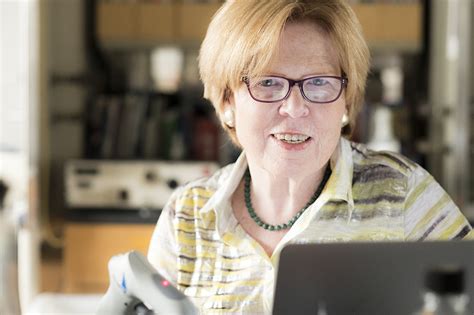A Quote by Michel de Montaigne
Learning is not to be tacked to the mind, but we must fuse and blend them together, not merely giving the mind a slight tincture, but a thorough and perfect dye. And if we perceive no evident change and improvement, it would be better to leave it alone; learning is a dangerous weapon, and apt to wound its master if it be wielded by a feeble hand, and by one not well acquainted with its use.
Related Quotes
From the standpoint of education, genius means essentially 'giving birth to the joy in learning.' I'd like to suggest that this is the central task of all educators. It is the genius of the student that is the driving force behind all learning. Before educators take on any of the other important issues in learning, they must first have a thorough understanding of what lies at the core of each student's intrinsic motivation to learn, and that motivation originates in each student's genius.
The average mind requires a change of environment before he can change his thought. He has to go somewhere or bring into his presence something that will suggest a new line of thinking and feeling. The master mind, however, can change his thought whenever he so desires. A change of scene is not necessary, because such a mind is not controlled from without. A change of scene will not produce a change of thought in the master mind unless he so elects.
There is first the problem of acquiring content, which is learning. There is another problem of acquiring learning skills, which is not merely learning, but learning to learn, not velocity, but acceleration. Learning to learn is one of the great inventions of living things. It is tremendously important. It makes evolution, biological as well as social, go faster. And it involves the development of the individual.
I wonder where you got that idea from? I mean, the idea that it's feeble to change your mind once it's made up. That's a wrong idea, you know. Make up your mind about things, by all means - but if something happens to show that you are wrong, then it is feeble not to change your mind, Elizabeth. Only the strongest people have the pluck to change their minds, and say so, if they see they have been wrong in their ideas.
The Gothic idea that we were to look backwards instead of forwards for the improvement of the human mind, and to recur to the annals of our ancestors for what is most perfect in government, in religion and in learning, is worthy of those bigots in religion and government by whom it has been recommended, and whose purposes it would answer. But it is not an idea which this country will endure.
A mind in control is always better than a mind out of control. For one thing, a controlled mind can learn much better and go much further than a chaotic one. A person with a steady-state mind has the potential to exit this life with a much greater understanding than someone who is continually learning and forgetting, gaining and misplacing knowledge.
It is learning how to stand alone, unpopular and sometimes reviled, and how to make common cause with those other identified as outside the structures, in order to define and seek a world in which we can all flourish. It is learning how to take our differences and make the strengths. For the master's tools will never dismantle the master's house.










































